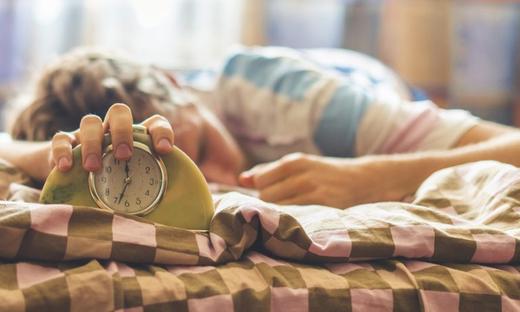Sleep Myths: Getting 4 Hours of Sleep
Aug 14, 21

Over the past few years, sleep science has made a lot of improvements and discoveries about our sleep health, providing more and more information about how sleep works, why it is important, and ways it can be interrupted. Despite this scientific breakthrough, misinformation about sleep can still be found on the Internet, on social media or word of mouth. Some of the false information has been repeated so many times that it has become a widespread myth. Although these sleep myths are refuted by scientific evidence, they are generally believed to cause poor sleep habits and too little sleep. The quality of sleep affects how rested you feel when you wake up. Improving the quality of sleep can reduce the time you spend in bed. However, even if your sleep quality is good, sleeping less than the recommended number of hours of sleep can be harmful to your mental performance and your health as well. You may be able to keep up with this for a few days, but at some point, you will stop feeling fine. Here are few of those myths that have been wandering around in our society:
- Your Body Gets Used to Getting Less Sleep
- It Doesn’t Matter When You Sleep as Long as You Sleep Enough Hours
- More Sleep Is Always Better
- Getting 4 hours of sleep is fine
- Alcohol Before Bed Improve Sleep
- Exercising at Night Disturbs Sleep
In this blog our sleep health experts are going to bust the myth that getting 4 hours of sleep is sufficient. Continue reading, to learn why you can’t feel refreshed after only 4 hours of sleep each night. We will also understand why some people feel that they sleep much less than others and still feel refreshed.
Is it Possible to Function on 4 Hours of Sleep a Night?

For most people, no matter how well they sleep, 4 hours of sleep each night is not enough to give them the mental alertness they need when they wake up. There is a common myth that humans can adapt to long-term insomnia or short durations of sleep, but there is no solid evidence that the body can adapt to function when sleep is severely insufficient. In addition, people who work out regularly need longer time than the recommended minimum, as their body needs time to recover from the extra exertion. It is believed that some people have a genetic mutation that allows them to naturally sleep for a shorter period of time and still feel refreshed when they wake up. THESE PEOPLE ARE RARE EXCEPTIONS, NOT THE RULE!
Sleeping less than 7 hours a night increases your risk of sleep issues, such as:
- Depression

2. Hypertension

3. Anxiety

4. Obstructive Sleep Apnea

5. Insomnia

6. Psychosis

7. Fatigue

A common misconception about sleep is that we only need it to replenish energy during the day and that drinking a few cups of strong coffee in the morning can serve you just as well as a good night’s sleep.
THE TRUTH!
The number of hours of sleep one person needs depends on one’s body, as we know everyone’s body is different, both physically and genetically, thus a person might be able to survive on shorter period of sleep but that does not mean that you’ll also be able to function on shorter period of sleep. Sleep health is of utmost important and as always, if you think you’re getting the sleep hours you need and you still feel tired during the day, talk to your sleep health expert about your symptoms, as well as your risk of having a sleep disorder.


